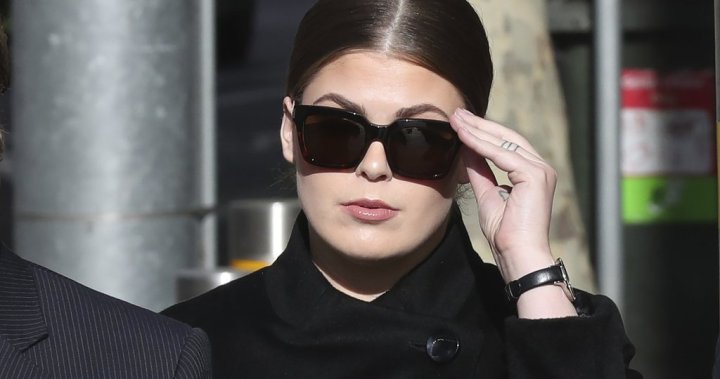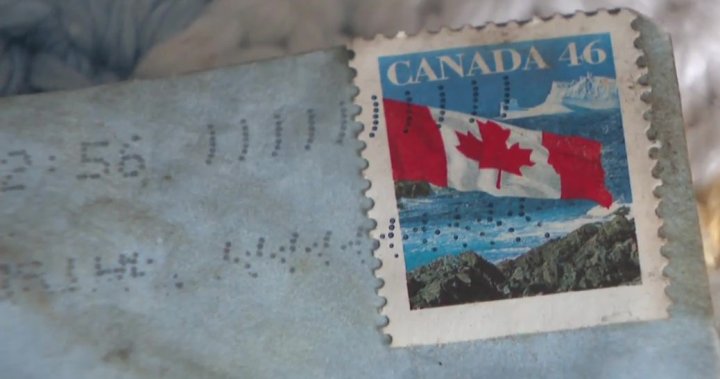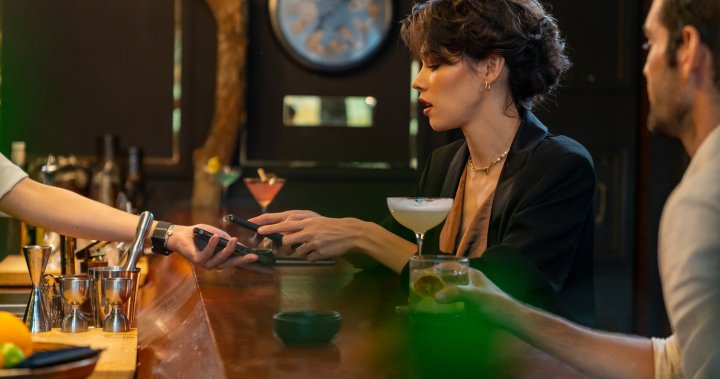Wellness blogger Belle Gibson faked terminal cancer years ago. She’s still on the hook – National

A decade after wellness influencer Belle Gibson admitted she didn’t have terminal brain cancer, which she claimed was cured by the healthy lifestyle that made her famous, her story has inspired a new Netflix series — and fresh outrage in Australia about the case’s lack of resolution.
Authorities said this week they’re still pursuing the disgraced Instagram star for unpaid fines, fueling ongoing ire among Australians about one of the country’s most brazen online scams — an episode that drew attention to the destructive harms of false health claims on social media.
Apple Cider Vinegar, a dramatic retelling of Gibson’s story released this month, doesn’t recount what happened after it was revealed in 2015 that she wasn’t sick. In real life, she never faced criminal charges.
But in 2017, Australia’s federal court fined her 410,000 Australian dollars ($261,000), which she had raised for charity and failed to donate. The consumer watchdog in the state of Victoria is still trying to recover the funds, a spokesperson told The Associated Press.
What was Belle Gibson charged with?
Gibson’s healthy recipe app, The Whole Pantry, had 200,000 downloads in one month from the Apple store in 2013. She claimed proceeds from the app and her cookbook — published by a Penguin imprint — would be donated to charities and to the family of a child with cancer.
Only two per cent of the total was donated and Gibson was found to have breached consumer law. A court ordered her to produce the remaining funds and barred her from making health claims.
In a letter to the court, Gibson said she was in debt, didn’t have a job and couldn’t pay the costs.
“Consumer Affairs Victoria has continued to undertake actions to enforce the debt owed by Annabelle Natalie Gibson (Belle Gibson) under court order,” said a statement from the agency that was supplied on Wednesday.
The statement did not say if any of the money has been recovered. Authorities have raided Gibson’s home twice in attempts to seize assets, but they didn’t publicly divulge an outcome.

The AP tried to reach Gibson for comment but didn’t receive a response. She hasn’t spoken publicly in years and wasn’t involved with, or paid by, the creators of the Netflix show.
Jacinta Allan, the premier of Victoria, said this month she was “disappointed” the case remains unresolved. But the authorities “won’t let up,” Allan told reporters.

Get weekly health news
Receive the latest medical news and health information delivered to you every Sunday.
Journalist Richard Guilliatt, who in 2015 was the first to report that Gibson was lying, said the lack of legal consequences still fuels “vitriol” toward the erstwhile influencer.
“The thing remains sort of like an open wound,” he said. “What she has suffered is just incredible public humiliation. There’s a part of me that thinks people are just going to have to let it go at some point.”
Did the case prompt changes?
Gibson’s book publisher paid a $30,000 ($19,000 US) fine in the civil case for failing to fact-check her claims.
While Gibson hasn’t faced more charges, her case had other repercussions. Australia’s code governing therapeutic health claims was dramatically overhauled in 2022 and breaches can now be punished by millions of dollars in fines — changes some analysts attribute in part to Gibson’s conduct.
Paid testimonials for such goods are now prohibited, and anyone claiming health expertise cannot endorse them.
“This would have applied to the therapeutic claims that Belle made,” said Suzy Madar, a Sydney-based partner at the law firm King & Wood Mallesons.

How have Australians responded to the series?
Apple Cider Vinegar has drawn praise for its skewering of online wellness culture — and criticism from Australians involved in the real-life events it recounts. The series is billed as a “true-ish story, based on a lie,” and Gibson is the only real person the show purports to depict.
But Queensland man Col Ainscough, whose wife and daughter — also a wellness influencer — both died of cancer decried the production in a statement this month, because its characters included a family with a different name whose story appeared to parallel his own.
The show was “insensitive and clearly profit-driven,” Ainscough said.
“Behind the TV stories, behind the dramatization, are real people who have had their lives devastated by the actions of this individual,” Allan, the state premier, told reporters.
But the case still holds fascination as one of Australia’s most “bizarre and flagrant” online scams, reporter Guilliatt said.
“I like to think that it really was a wake-up call for a lot of people,” he said. “I hope it’s had an impact in terms of people’s gullibility about accepting advice on very serious health conditions online.”
© 2025 The Canadian Press








